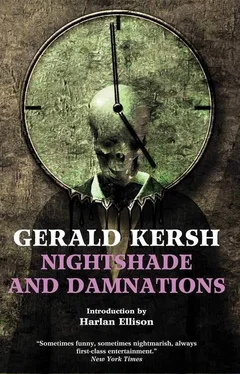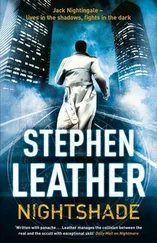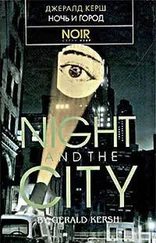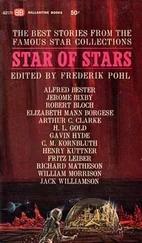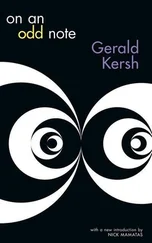Джералд Керш - Nightshade and Damnations
Здесь есть возможность читать онлайн «Джералд Керш - Nightshade and Damnations» весь текст электронной книги совершенно бесплатно (целиком полную версию без сокращений). В некоторых случаях можно слушать аудио, скачать через торрент в формате fb2 и присутствует краткое содержание. Город: Richmond, Год выпуска: 2013, Издательство: Valancourt Books, Жанр: Фантастика и фэнтези, на английском языке. Описание произведения, (предисловие) а так же отзывы посетителей доступны на портале библиотеки ЛибКат.
- Название:Nightshade and Damnations
- Автор:
- Издательство:Valancourt Books
- Жанр:
- Год:2013
- Город:Richmond
- ISBN:нет данных
- Рейтинг книги:3 / 5. Голосов: 1
-
Избранное:Добавить в избранное
- Отзывы:
-
Ваша оценка:
- 60
- 1
- 2
- 3
- 4
- 5
Nightshade and Damnations: краткое содержание, описание и аннотация
Предлагаем к чтению аннотацию, описание, краткое содержание или предисловие (зависит от того, что написал сам автор книги «Nightshade and Damnations»). Если вы не нашли необходимую информацию о книге — напишите в комментариях, мы постараемся отыскать её.
Nightshade and Damnations — читать онлайн бесплатно полную книгу (весь текст) целиком
Ниже представлен текст книги, разбитый по страницам. Система сохранения места последней прочитанной страницы, позволяет с удобством читать онлайн бесплатно книгу «Nightshade and Damnations», без необходимости каждый раз заново искать на чём Вы остановились. Поставьте закладку, и сможете в любой момент перейти на страницу, на которой закончили чтение.
Интервал:
Закладка:
I bring all this back into memory to prove that I was there, as a war correspondent, on my way to the Pacific. Since I was wearing battledress and a beard, I, also, must have been conspicuous that voyage. And the secret school of illicit crapshooters must remember me with nostalgic affection: I arrived in New York with exactly fifteen cents, and had to borrow five dollars from an amiable Congregationalist minister named John Smith—who also will testify to the fact that I was on board. If further evidence were needed, a lady nurse, Lieutenant Grace Dimichele, of Vermont, took my photograph as we came into port.
But in the excitement of that tremendous moment, when thousands of men were struggling and jostling, laughing and crying, and snapping cameras at the New York skyline which is the most beautiful in the world, I lost Corporal Cuckoo. I have made exhaustive enquiries as to his whereabouts, but that extraordinary man had disappeared like a puff of smoke.
Surely, there must be scores of men who retain some memory of Cuckoo, whom they must have seen hundreds and hundreds of times on the Queen Mary , between July 6th and July 11, 1945.
He was a light-haired man of medium height, but he must have weighed at least a hundred and ninety pounds, for he was ponderously built, and had enormously heavy bones. I beg my fellow passengers to remember, if they can. He had watery eyes of greenish-gray, and limped a little on his right leg. His teeth were powerful—large, square, and slightly protruding; but generally he kept them covered with his thick, curiously wrinkled lips. People in general are unobservant, I know, but no one who saw Corporal Cuckoo could fail to remember his scars. There was a frightful indentation in his skull, between his left eyebrow and his right ear. When I first noticed him, I remembered an axe murder at which I shuddered many years ago when I was a crime reporter. “He must have an extraordinary constitution if he lives to walk around with a scar like that,” I thought. His chin and throat were puckered scar tissue such as marks the place where flesh has been badly burned and well healed. Half of his right ear was missing and close by there was another scar, from cheekbone to mastoid. The back of his right hand appeared to have been hacked with a knife—I counted at least four formidable cuts, all old and white and deep. He conveyed this impression: that a long time ago, a number of people had got together to butcher him with hatchets, sabres, and knives, and that, in spite of their most determined efforts, he had survived. For all his scars were old. Yet the man was young—not more than thirty-five as I guessed.
He filled me with a burning curiosity. One of you must remember him! He went about, surly and unsociable, smoking cigarettes which he never took out of his mouth—he smoked them down and spat the ends out only when the fire touched his lips. That, I thought, must be why his eyes are so watery. He moped about, thinking, or brooding. He was particularly addicted to loitering on the stairs and lurking in dark corners. I made tentative enquiries about him around the decks; but just then everyone was passionately interested in an officer who looked like Spencer Tracy. But in the end I found out for myself.
Liquor, also, was prohibited on troopships. Having been warned of this, I took the precaution of smuggling some bottles of whiskey aboard. On the first day out I offered a drink to a captain of Infantry. Before I knew where I was, I had made seventeen new friends who overwhelmed me with affability and asked for my autograph; so that on the second day, having thrown the last of the empty bottles out of the porthole, I was glad to sponge a drink off Mr. Charles Bennett, the playwright, of Hollywood, California. (He, too, if his modesty permits, will bear witness that I am telling the truth.) He gave me a ginger ale bottle full of good Scotch, which I concealed in the blouse of my battledress, not daring to let any of my friends know that I had it. Late in the evening of the third day, I withdrew to a quiet spot where there was a strong enough diffusion of yellow light for me to read by. I intended to struggle again through some of the poems of François Villon, and to refresh myself at intervals with a spot of Mr. Bennett’s Scotch. It was hard to find an unoccupied place beyond locked doors on the Queen Mary at that time, but I found one. I was trying to read Villon’s Ballade of Good Counsel , which that great poet wrote in medieval underworld slang, which is all but incomprehensible even to erudite Frenchmen who have studied the argot of the period. I repeated the first two lines aloud, hoping to talk some new meaning into them:
Car ou soie porteur de bulles
pipeur ou hasardeur de dez
Then a languid voice said: “Hello, there! What do you know about it?”
I looked up and saw the sombre, scarred face of the mysterious Corporal half-in and half-out of the shadows. There was nothing to do but offer him a drink for I had the bottle in my hand, and he was looking at it. He thanked me curtly, half emptied the little bottle in one gulp and returned it to me. “ Pipeur ou hasardeur de dez ,” he said sighing. “That’s old stuff. Do you like it, sir?”
I said: “Very much indeed. What a great man Villon must have been. Who else could have used such debased language to such effect? Who else could have taken thieves’ patter—which is always ugly—and turned it into beautiful poetry?”
“You understand it, eh?” he asked, with a half laugh.
“I can’t say that I do,” I said, “but it certainly makes poetry.”
“Yes, I know".
“ Pipeur ou hasardeur de dez . You might as well try to make poetry out of something like this: ‘I don’t care if you run some come-to-Jesus racket, or shoot craps . . .’ Who are you? What’s the idea? It’s a hell of a long time since they allowed you to wear a beard in the Army.”
“War correspondent,” I said. “My name is Kersh. You might as well finish this.”
He emptied the little bottle and said: “Thanks, Mr. Kersh. My name is Cuckoo.”
He threw himself down beside me, striking the deck like a sack of wet sand. “Yeahp . . . I think I will sit down,” he said. Then he took my little book in his frightfully scarred right hand, flapped it against his knee, and then gave it back to me. “ Hasardeur de dez! ” he said, in an outlandish accent.
“You read Villon, I see,” I said.
“No, I don’t. I’m not much of a reader.”
“But you speak French?”
“So what?”
“Where did you learn it?” I asked.
“In France.”
“On your way home now?”
“I guess so.”
“You’re not sorry, I daresay.”
“No, I guess not.”
“You were in France?”
“Holland.”
“In the army long?”
“Quite a while.”
“Do you like it?”
“Sure. It’s alright, I guess. Where are you from?”
“London,” I said.
He said, “I’ve been there.”
“And where do you come from?” I asked.
“What? . . . Me? . . . Oh, from New York, I guess.”
“And how did you like London?” I asked.
“It’s improved.”
“Improved? I was afraid you’d seen it at a disadvantage, what with the bombing, and all that,” I said.
“Oh, London’s alright, I guess.”
“You should have been there before the war, Corporal Cuckoo.”
“I was there before the war.”
“You must have been very young then,” I said.
Corporal Cuckoo replied: “Not so damn young.”
I said: “I’m a war correspondent, and newspaper man, and so I have the right to ask impertinent questions. I might, you know, write a piece about you for my paper. What sort of name is Cuckoo? I’ve never heard it before.”
Читать дальшеИнтервал:
Закладка:
Похожие книги на «Nightshade and Damnations»
Представляем Вашему вниманию похожие книги на «Nightshade and Damnations» списком для выбора. Мы отобрали схожую по названию и смыслу литературу в надежде предоставить читателям больше вариантов отыскать новые, интересные, ещё непрочитанные произведения.
Обсуждение, отзывы о книге «Nightshade and Damnations» и просто собственные мнения читателей. Оставьте ваши комментарии, напишите, что Вы думаете о произведении, его смысле или главных героях. Укажите что конкретно понравилось, а что нет, и почему Вы так считаете.
